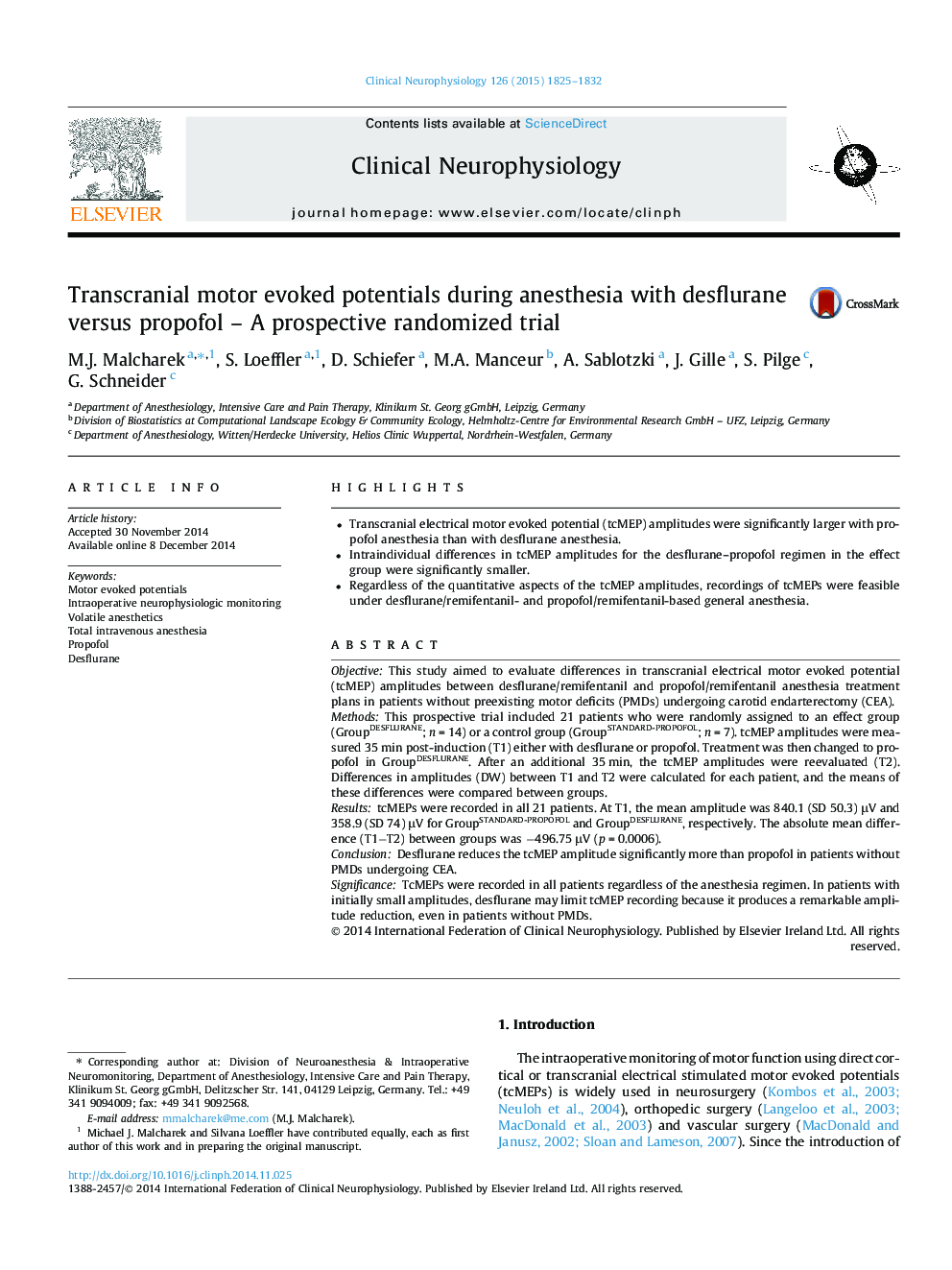| Article ID | Journal | Published Year | Pages | File Type |
|---|---|---|---|---|
| 3042834 | Clinical Neurophysiology | 2015 | 8 Pages |
•Transcranial electrical motor evoked potential (tcMEP) amplitudes were significantly larger with propofol anesthesia than with desflurane anesthesia.•Intraindividual differences in tcMEP amplitudes for the desflurane–propofol regimen in the effect group were significantly smaller.•Regardless of the quantitative aspects of the tcMEP amplitudes, recordings of tcMEPs were feasible under desflurane/remifentanil- and propofol/remifentanil-based general anesthesia.
ObjectiveThis study aimed to evaluate differences in transcranial electrical motor evoked potential (tcMEP) amplitudes between desflurane/remifentanil and propofol/remifentanil anesthesia treatment plans in patients without preexisting motor deficits (PMDs) undergoing carotid endarterectomy (CEA).MethodsThis prospective trial included 21 patients who were randomly assigned to an effect group (GroupDESFLURANE; n = 14) or a control group (GroupSTANDARD-PROPOFOL; n = 7). tcMEP amplitudes were measured 35 min post-induction (T1) either with desflurane or propofol. Treatment was then changed to propofol in GroupDESFLURANE. After an additional 35 min, the tcMEP amplitudes were reevaluated (T2). Differences in amplitudes (DW) between T1 and T2 were calculated for each patient, and the means of these differences were compared between groups.ResultstcMEPs were recorded in all 21 patients. At T1, the mean amplitude was 840.1 (SD 50.3) μV and 358.9 (SD 74) μV for GroupSTANDARD-PROPOFOL and GroupDESFLURANE, respectively. The absolute mean difference (T1−T2) between groups was −496.75 μV (p = 0.0006).ConclusionDesflurane reduces the tcMEP amplitude significantly more than propofol in patients without PMDs undergoing CEA.SignificanceTcMEPs were recorded in all patients regardless of the anesthesia regimen. In patients with initially small amplitudes, desflurane may limit tcMEP recording because it produces a remarkable amplitude reduction, even in patients without PMDs.
